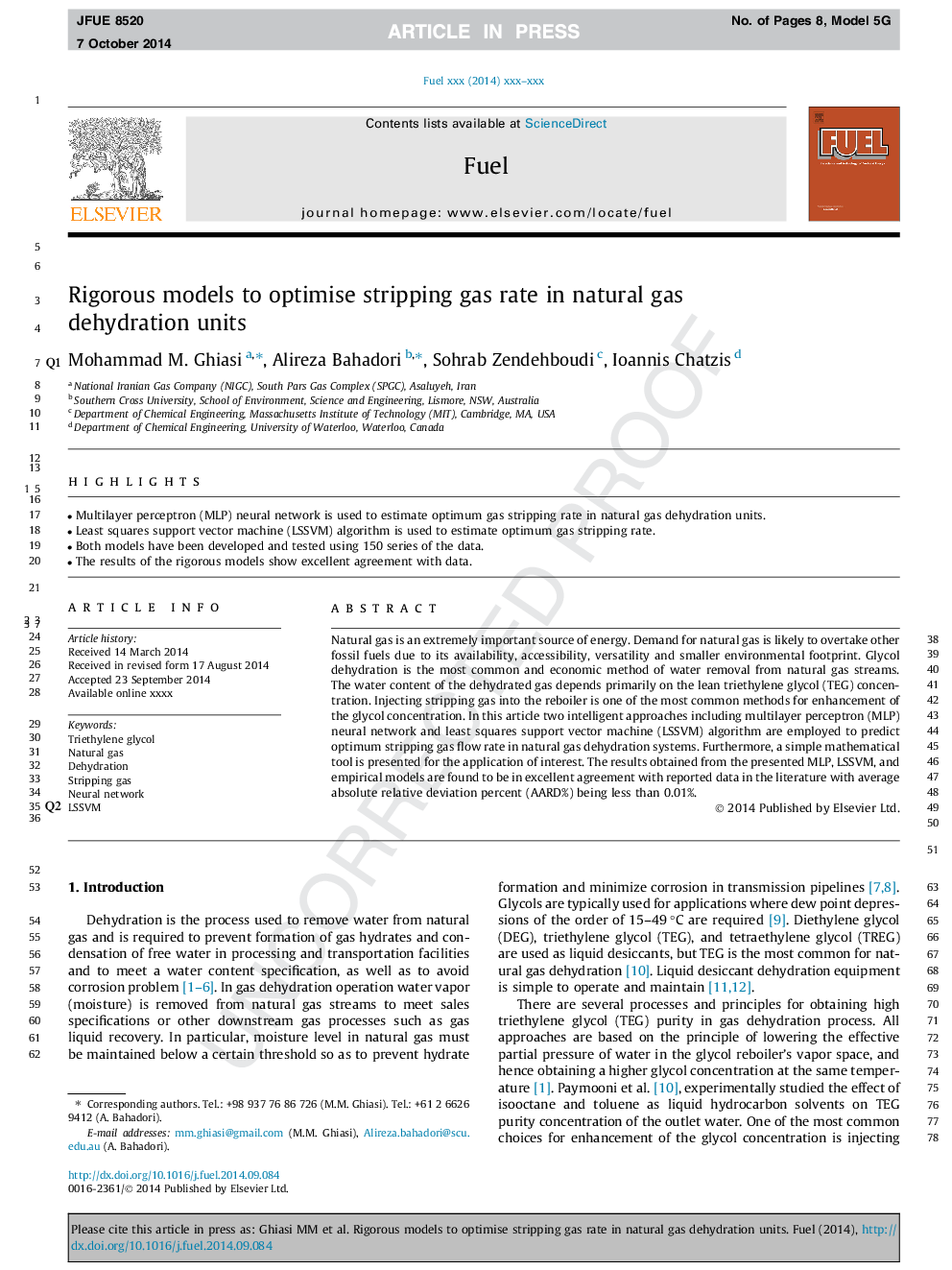| Article ID | Journal | Published Year | Pages | File Type |
|---|---|---|---|---|
| 6636277 | Fuel | 2015 | 8 Pages |
Abstract
Natural gas is an extremely vital supply of energy. Compared to other fossil fuels, demand for natural gas is experiencing a considerable growth due to its accessibility, availability, versatility and smaller environmental footprint. Glycol dehydration is the most common and economic method of water removal from natural gas streams. The water content of the dehydrated gas depends primarily on the lean triethylene glycol (TEG) concentration. Injecting stripping gas into the reboiler is taken into account as an effective way to improve the glycol concentration. In this article, two intelligent approaches including multilayer perceptron (MLP) neural network and least squares support vector machine (LSSVM) algorithm are utilized to predict optimum stripping gas flow rate in natural gas dehydration systems. Furthermore, a simple mathematical tool is presented for the application of interest. Based on the statistical analysis, an excellent match is noticed between the values obtained from the predictive tools (e.g., MLP, LSSVM and the empirical equations) and the real data so that the average absolute relative deviation percent (AARD %) is determined to be lower than 0.01%.
Related Topics
Physical Sciences and Engineering
Chemical Engineering
Chemical Engineering (General)
Authors
Mohammad M. Ghiasi, Alireza Bahadori, Sohrab Zendehboudi, Ioannis Chatzis,
